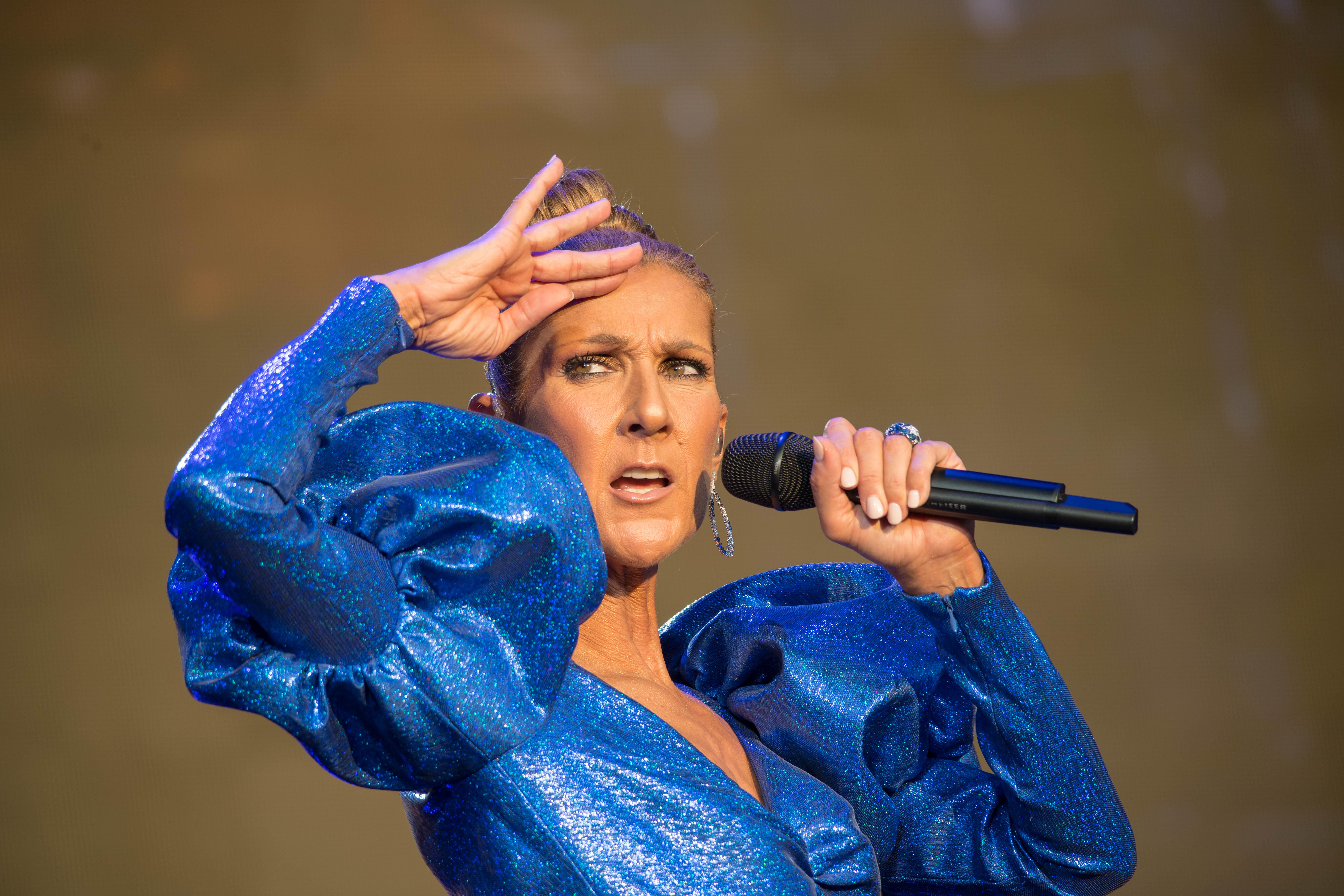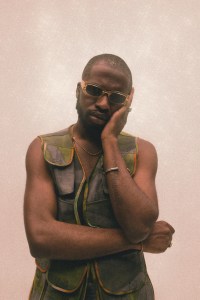On a Sunday afternoon in December of 2020, I was riding home in silence when my Uber driver connected his phone to the car stereo. It started blasting Celine Dion’s 2002 single “A New Day Has Come” and, without a second thought, we both fell into singing it out loud.
For the rest of the trip, we exclusively played Celine hits and barely conversed. There wasn’t any need to. It was a casual moment, but a reminder of how much power and influence Celine Dion still has in Nigeria across generations, linking me, a 21-year-old member of Gen Z, and my Uber driver, who looked to be in his mid to late forties. It also reminded me of a different moment buried deep in my memory: my father and I singing along to Celine Dion as we washed his car on Saturday mornings.
Videos by VICE
In the 1990s, Nigerian music evolved to incorporate a lot of outside influences. R&B and hip-hop became predominant sounds within the country, fusing with our homegrown Afrobeats and giving birth to international acts like 2Baba and P-Square. It was around this time that Celine Dion released her debut English-language album Unison, but it was her subsequent releases – particularly The Colour of My Love and Falling Into You – which turned Celine Dion into a household name in Nigeria.
“I remember when my mum bought The Colour of Love on her way back from work. She and my dad would play it while we sat on the ground around them and tried to write out the lyrics,” says Chioma Albert, a 44-year-old housewife. ‘‘Eventually, we bought those little song books that had the lyrics in and we went everywhere with it. I can still sing almost every Celine Dion song released word for word, because I did that with every album she released.”
By the 2000s, Celine Dion was basically the queen of Nigerian airwaves. It was impossible to watch TV or listen to the radio without hearing her music – either on adverts, or in Nollywood films featuring heartthrobs like Genevieve Nnaji and Ramsey Nouah. Celine’s music hit a sweet spot. It had lyrics that teenagers could use to woo their crushes; it was clean enough that parents would let their kids listen; it was emotional enough for romantics to get into it; and there was something almost holy about it that made it sound like it was gospel music. There was nothing to hate and everything to love.

However, the most fascinating thing about Celine’s influence in Nigeria has to be the people who make up the core of her fanbase, namely: middle-aged men. There is a popular joke among young Nigerians about how the worst thing you can do to yourself is to go meet a group of elderly men and tell them that Celine Dion isn’t a good singer, because they will react with violence.
Slyvester Magnus, a retired principal from Egi, a small tribe in southern Nigeria, tells me about falling in love with Celine Dion’s voice as a young man: “My elder brother lived in the city back then, and he would come back home with her records. Every morning, we would play it and listen to it like it was gospel music. Celine Dion had a very beautiful and clean voice, gorgeous voice. She can be singing about heartbreak or love or death and you’ll just be thinking, ‘Chim o [my God!], what a voice.’ I still play it regularly. I tell my kids that this is what good music is, not all this noise they listen to.”
Celine Dion occupies a special place in the heart of Duncan Elemele, a 46-year-old driver, because he used her music to woo his wife. “My wife and I love Celine Dion. When I discovered this, I would play Celine Dion any time she came over,” he says. “I started using her lyrics in the love letters I gave to her when she was going back to school. We got married in 2002, and till today, we love her. That Deadpool movie – I didn’t like it, but we went to see it because of Celine.”
While other divas were big in Nigeria – Whitney Houston and Shania Twain in the late 1990s and early 2000s, Beyonce and Rihanna in the 2010s – none have reached Celine’s level of popularity. Power balladry and vocal prowess definitely play a huge role, but it’s more than that. Celine sings about things almost everyone can relate to, and she has never been embroiled in a controversy that could alienate any part of the populace. Nigerians are very religious – one overtly sexual song or dance move, or even a slight allusion to doing something deplorable, is enough to have religious leaders urging their followers to boycott her. Celine never had that. Not even a conspiracy theory.
However, as much as Celine elicits a level of reverence and love from older Nigerians in a way almost no other Western act ever has or likely ever will, her impact transcends generations because her presence was a constant.
“Her music was just somehow always there, ever since I can remember,” says Uche Madowgwu, a lawyer living in Lagos. “‘That’s The Way It Is’ reminds of the few times I truly felt happy as a teenager. We had the video of her greatest hits in the house, and I would watch it over and over whenever I felt sad. No matter how bad I was feeling, watching and hearing her sing about not giving up on love made me feel like there was hope.’’
Dika Ofoma, a writer in his twenties, also grew up with Celine Dion playing constantly at home. “One thing that stands out from my early memory of her was the video for ‘A New Day Has Come’. Little me thought she’d really gone up in the sky to make the video,” he says. “I’m a very nostalgic person. Celine Dion’s music is the music of my childhood. I still want that part of me to remain. I go to her whenever I want to relive certain memories.”
For others, falling in love with Celine was more or less like a baton being passed from their parents. “Until you asked me about it, I didn’t even realise stanning Celine was optional,” laughs Sylvia Bassey. “I grew up on her, I know every word of every song. My dad had her albums in his car and would play it when taking me to school. When he passed, listening to Celine was a way of connecting with him and those beautiful memories.”
Celine Dion has spent four decades singing about some of the most universal themes – love, loss and heartbreak – in the most beautiful ways. It’s unsurprising that her appeal is universal and that she is loved around the world. Uche Madogwu explains her appeal in simple terms: “Love is one of the few universal human experiences, and no one sings about love with so much passion and feeling like she does. She sings every note like she’s living through it at that moment. It’s incredible.”
Celine’s impact doesn’t appear to be dying out. Last year, a Twitter format where people asked their followers “what feels x but isn’t really x?” went viral. One of the tweets asked, “What feels Nigerian but isn’t really Nigerian?” and many of the replies were Celine Dion. Her music has become a huge part of Nigerian music history in a way that makes it feel like ours. And the way the generation before mine passed on their love of Celine to mine is the way my generation will pass it on to the generation after it. So long as love and heartbreak and amazing vocals are a thing, Celine’s music will always have a power over Nigerians.
More
From VICE
-

Andrey Popov / Getty Images -

Hanceville Police Department / Facebook -

Screenshot: Lenovo/Shaun Cichacki -

Screenshots: Saber Interactive Inc, Rose City Games


